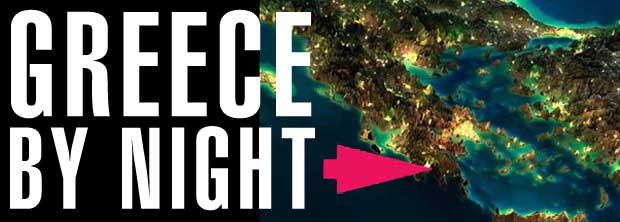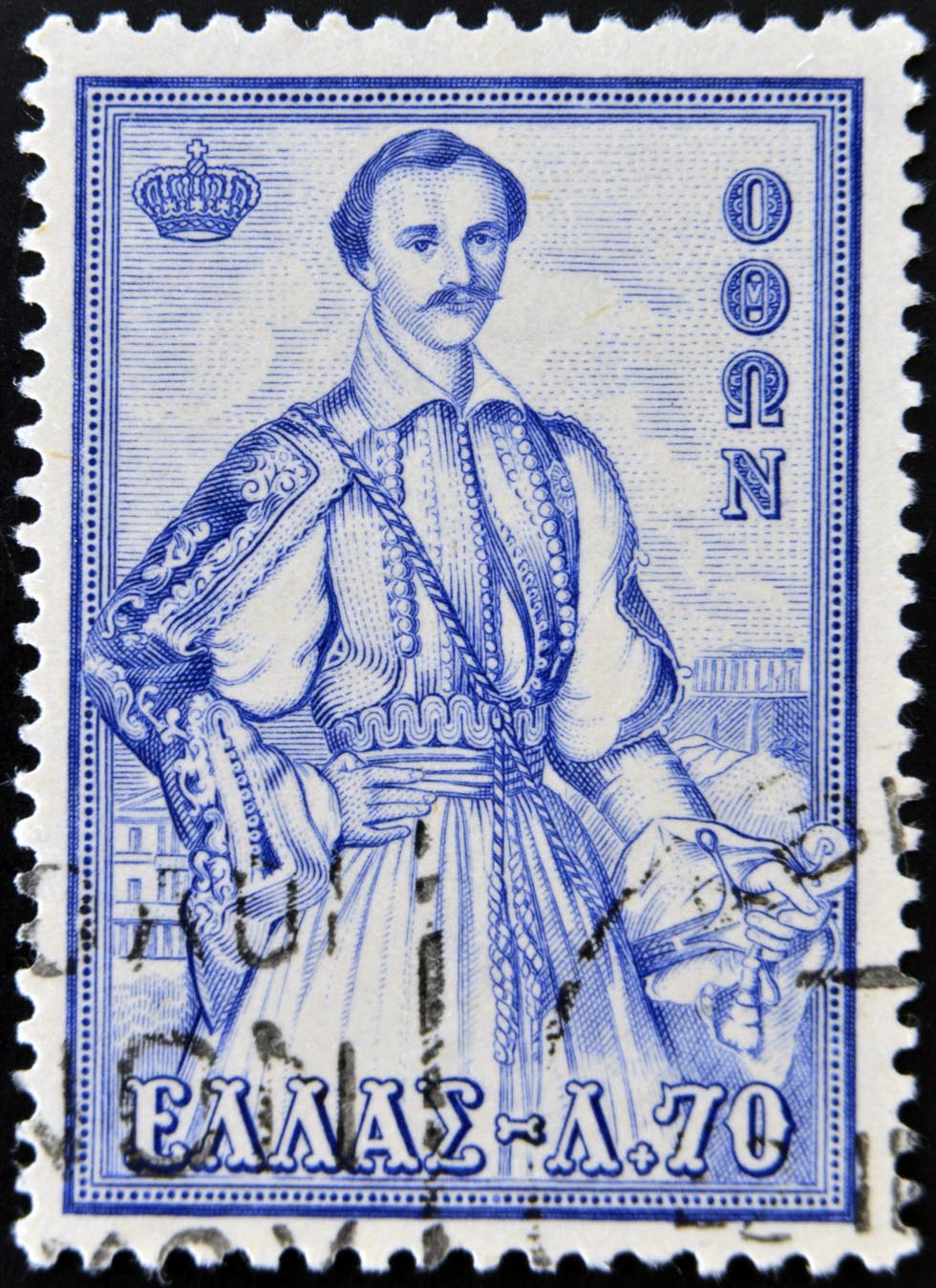King Otto of Greece
Also known as King Otho I (Hellenized version of name)
The first modern era King of Greece
Timeline of King Otto I of Greece:
Biography of King Otto I of Greece
ADVERTISEMENT
Guide Book for the Peloponnese: with Athens, Delphi and Kythira – Paperback – Amazon – Bradt Travel Guides, 288 Pages, November 18, 2025
Timeline of King Otto I of Greece:
1815: Born June 1, 1815, in Salzburg, Austria, son of King Ludwig I of Bavaria as "Prince Otto Friedrich Ludwig of Bavaria." He was the second son of King Ludwig I of Bavaria and Queen Therese of Saxe-Hildburghausen.
1832: Otto is chosen King of Greece by the "Three Protecting Powers" of England, France and Russia in May. They deliberately choose outside of their own royal families to to try and avoid conflict between each other. Otto's choice as King of Greece is ratified by the Greek National Assembly in the summer of 1832.
1833: Otto arrived in Greece on February 6, 1833, and was formally enthroned as King Otto I on June 18, 1833. Because Otto is only 17, his rule is guided by three regents from his father's court until Otto reaches the age of twenty-one. Combined with Otto's ascension is a loan of badly needed £2.4 million pounds (underwritten by the United Kingdom and the House of Rothschild) to assist with rebuilding the country after the devastation of the war.
1834: Moves the Capitol of Greece from Nafplio to Athens.
1836: Marries Duchess Amalia (December 21, 1818 to May 20, 1875) of Oldenburg, Germany, age seventeen. The wedding was in Germany on November 22, 1836. She was Lutheran, and this combined with Otto's Roman Catholicism adds to growing contention about foreign influence in the religious life of Greeks. Further problems are created when the royal couple do not produce an heir.
1837: Established the University of Athens on May 3.
1841: Otto attempts, and fails, an annexation of Crete to Greece.
1843: A constitution is finally delivered after many demands by Greek leaders (and the threat of an outright coup or revolt), which included a provision that Otto's heirs would be of the Orthodox church, though succession, in the absence of a direct heir, would pass through Otto's siblings and their heirs. Otto's agreement to the constitution and the relinquishing of his autocratic power is contested by the Queen Amalia.
1850: The "David Pacifico" incident which caused the British fleet to blockage Piraeus further damages Otto's support as it shows an obvious erosion of support from the British for Otto's reign (the British pressure was to force the Athenian authorities to compensate a British subject, David Pacifico, who had his home ransacked by a mob. Pacifico was mistakenly blamed for a ban by the authorities on burning a traditional effigy of Judas Iscariot during Easter. In fact the ban had been put in place out of a concern of insulting a visiting Lord Rothschild.)
1853: Piraeus is again blockaded when Otto appears to be preparing to get involved in the Crimean War in order to make a move on capturing Constantinople from Turkey. This episode is described as an effort to pursue the Greek Great Idea (Μεγάλη Ιδέα) of recreating the Byzantine Empire (Turkey conquered Constantinople on May 29, 1453.) This inefficacy feeds the ill will from the Kings detractors.
1859: Otto supports the Austrians in the Italian War of Independence, which further alienated Greek citizens who did not wish Greek involvement in a foreign war.
1861: An assassination attempt on Queen Amelia results in some Greeks hailing the failed assassin as a hero, though it also temporarily boosts support for the King from other Greeks.
1862: While in the Peloponnese, a coup on October 23 in Athens brings about a National Assembly and new provisional government. Urged by the "Great Powers" to voluntarily quit, Otto and Amalia board a British warship and eventually return to Bavaria.
1866: Otto donates most of his fortune to support the rebellion of Crete against the Ottoman Empire, under condition the donation is kept secret until after his death.
1867: Died July 26, 1867, in Bamberg, Bavaria.
Biography of King Otto I of Greece
Otto von Wittelsbach was the son of King Ludwig I of Bavaria. Otto's father's biography notes that he was a dedicated Philhellene and supported the Greek War of Independence, personally providing a loan of 1.5 million florins of his private money to the Greek effort to throw off Ottoman rule at a time when success was far from assured.
Ludwig's Bavarian son might seem an odd choice for a kingship in Greece, but there are several main reasons he was chosen, and many more minor reasons that reflect the nature of compromise and contradiction in the diplomacy of the early 1800s.
The main issue (for European leadership) was ending the chaotic infighting between Greek leaders after the last Ottoman troops (which were Egyptian forces) were pushed out of the Peloponnese, but also more importantly for them was preventing the igniting of a larger conflict in the Mediterranean. It was believed instability in Greece would inevitably bring in the actions of additional countries and consequently pull in the militaries of the three "Protecting Powers" all over again.
To integrate Greece into the European way of ruling, which was through alliances between royal families, it was necessary to obtain a trustworthy individual that would not come with baggage that would instill anger in one side or another in Greece, where clan loyalties and assassinations had been making anarchy of the efforts to form effective self-rule. Some groups of Greeks were divided from each other by efforts to back either French, Russian or English goals. These sub-groups would plague Otto throughout his rule and he would often strategize to reward one group to offset the growing power of another one. The end result was that foreign powers enjoyed increasing influence on Greece at the expense of native Greek groups, feeding resentments and suspicion.
Despite the atmosphere of complicated politics in the capitol, at the same time important reforms were inacted by the Bavarian advisors, such as the creation of local communal councils for populated areas, called "the demes," which meant a shift in power from unelected clan leaders to elected local leaders (though only chosen from government approved candidates).
But further erosion to Otto's initial popularity was from the activities of Bavarian advisors who pried into the religious life of the state (after all, King Otto was officially the head of the Greek Orthodox Church, despite his Catholicism), ultimately his advisors worked to suppress the monastery system in Greece, outraging the populace in general, and drawing the anger of the Russians who were also an Orthodox country. As each sub-group worked against each other these and other issues became harder to solve or control.
During his rule, Otto provided for the building of schools and hospitals, some, such as the Athens Polytechnic University, are still in operation.
He was finally deposed on Oct. 23, 1862, and he and Queen Amalia returned to Bavaria via the same transport he originally arrived with: aboard a British ship. (Otto was replaced by a Danish prince named Christian William Ferdinand Adolf George, born in Copenhagen. He was made King George I of Greece in 1863 by the Greek National Assembly.)
In the five years before his death in Bavaria in 1867, Otto often wore the native Greek uniform reserved only for the Evzones.
King Otto crown, scepter and sword found at Tatoi
July 17, 2023: Story at Protothema [Greek]
Greek History Topics
Attalos II Philometor Euergetes
The Classical Period fo Greek History
Constantine II – The Last King of Greece
Parthenon (photo 1920)
Greece 1990s economic survival
The Panathenaic Stadium in Athens
Lycurgus of Athens famed financial leader and public works administrator for Athens in 4th century BC
Description of the original Hagia Sophia of Justinian I from the book History of the Byzantine Empire by George Ostrogorsky
Related: Constantine II The Last King of Greece has died



Greece's Golden Visa program

